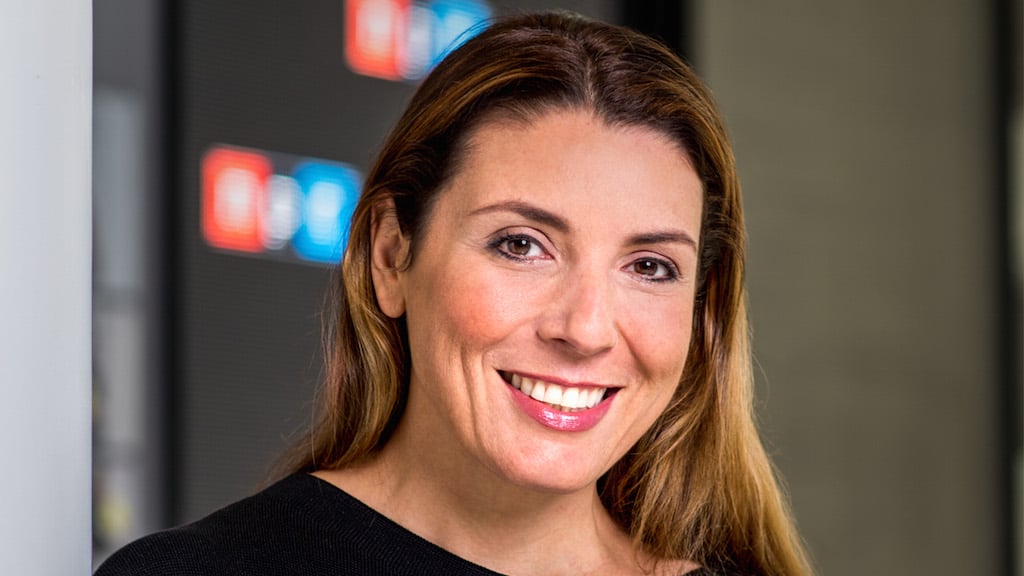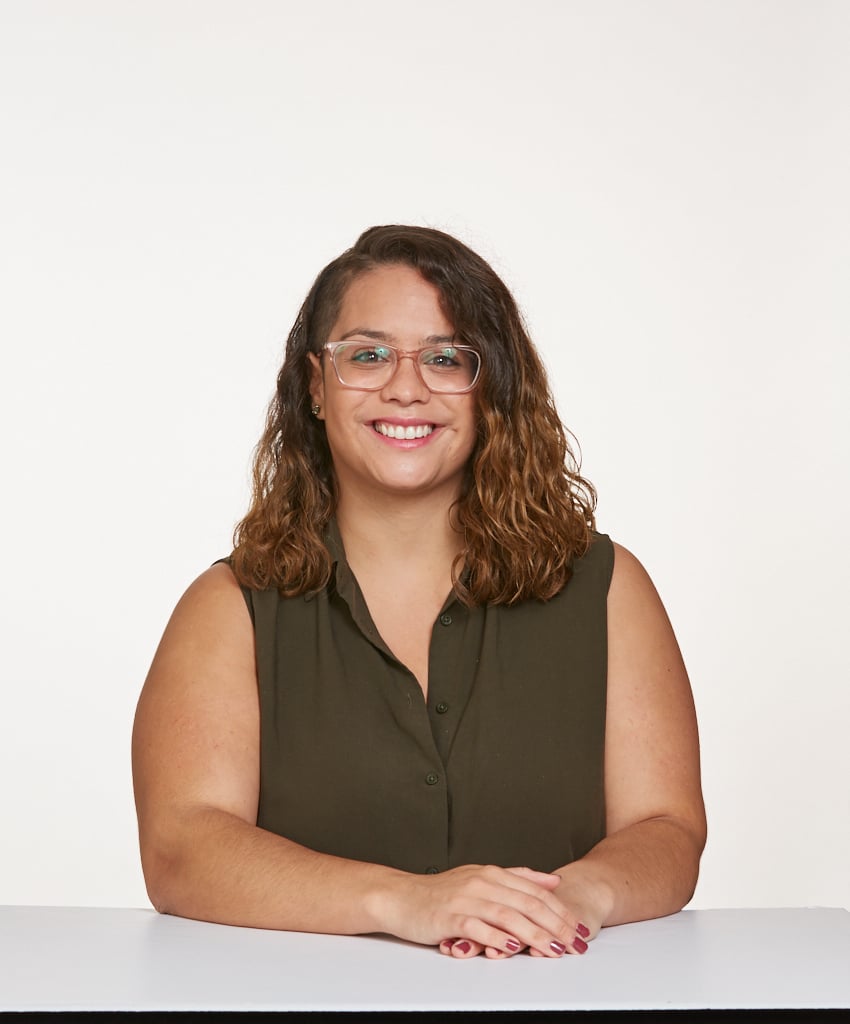Lulu Garcia-Navarro’s office at NPR’s headquarters is still practically bare except for a new colorfully patterned rug and her four-year-old daughter’s pink coat draped across the couch. After spending the last 11 years reporting from Latin America and war zones in the Middle East, just having a desk is rather novel. Last December, Garcia-Navarro returned to the United States to host Weekend Edition Sunday.
Garcia-Navarro put in a lot of work outside the office before she became the first Latina to host an NPR news magazine show. Before NPR foreign correspondence, the Miami native had worked for BBC World Service, Voice of America, as well as Associated Press TV and Radio. She’s spent almost all of her career traveling the globe. In 2011, she became one of the first people to report on the Arab Spring—picking up a Peabody Award and a handful of others along the way. Most recently, she worked in Brazil, reporting on the effects of the Olympics, the Zika virus, and the Amazon’s fire season to name a few.
Weekend Edition Sunday was the only job Garcia-Navarro wanted when she decided to come home. After the adrenaline of international reporting, she wanted a show that granted her a reflective look at the week’s biggest stories. She’s committed to finding unexpected voices and perspectives at a time “when everyone is asking themselves these really important and fundamental questions about who we are and where we’re going,” she says. “I spent years covering the Iraq War. I started to feel, watching this election, that it was an interesting time to come back and be part of the conversation.”
Since she began hosting, the show has featured stories on DC roommates who disagree on politics and remain harmonious, how President Trump’s travel ban negatively affects scientists, and what Sanctuary Cities are. “One of the things this show does really well is talk to people, real people and get their stories, hear their voices,” says Garcia-Navarro. “Radio is really powerful that way.” It’s not all politics, though. Puzzles, historical takes, and music round out the program.
Garcia-Navarro has also started newer segments within the show. There’s now a call-in segment where listeners ask questions pertaining to specific topics and she helps provide answers. This week, it was questions about how a wall on the US southern border would affect residents in south Texas. Sports is another new segment, dubbed “Out of Bounds,” about the National Women’s Hockey League this past week.
But the hardest part of the job is not having weekends. As part of the Weekend Edition crew, Garcia-Navarro is in the office while most people are having brunch and relaxing; her restful days start when everyone else goes back to work. “No one wants to get lunch on a Monday,” she jokes.
When she’s not in the office, she and her husband like to explore the city. Walking their dog, Nena, they might explore Crispus Attucks park in Bloomingdale or grab some food. Garcia-Navarro says her last few postings have been in cities that aren’t “places with a lot of Korean barbecue,” so DC’s food diversity has been a joy. She loves being able to go to different neighborhoods and practice her language skills, speaking Spanish whenever she can.
Despite her international travels, Garcia-Navarro says DC is one of her favorite cities of all time. “I know that everyone complains about the traffic here, I will tell you it is not bad,” says Garcia-Navarro. It’s no where near as bad as Cairo, she explains, or Rio, where it could take an hour to drive two miles. True, when it comes to weather, Washington is no Rio either. The Garcia-Navarro family has had to adjust to colder temperatures in the region. “I have no idea how to shovel snow; I come from Miami,” she whispers. After her first experience with freezing rain this winter (her car looked like an “ice sculpture”), she decided if there was a need to shovel, it would be her husband’s responsibility. Lucky for him, winter’s been mild.
After moving to a new country almost every three years, they’ve landed in Shaw. Garcia-Navarro believes DC has become more dynamic since her undergrad days at Georgetown, and also wanted to be in a diverse area where she could see the effects of gentrification up close. She doesn’t buy the often-heard argument that the city is a bubble. “Conversations that you’re having in DC are real,” she says. “They reflect a lot of the conversations that I see around the country about what we want our cities to look like.”




















